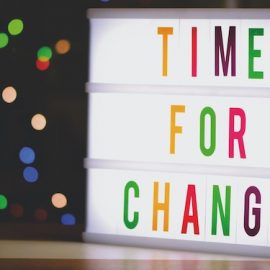

This article is an excerpt from the Shortform book guide to "Antifragile" by Nassim Nicholas Taleb. Shortform has the world's best summaries and analyses of books you should be reading.
Like this article? Sign up for a free trial here .
Can you learn from others’ mistakes? Why is it so important to view errors as investments?
Part of building antifragility is being able to make errors and be stronger for them. But you don’t actually have to make all the mistakes yourself. You can learn from others’ mistakes just as easily, and improve upon their strategies.
Keep reading to find out how to learn from others’ mistakes.
Errors Are Investments
With all this talk of options and chance, one could be excused for thinking that the world progresses almost completely randomly. However, that’s not the case. Whether you’re looking at evolution, politics, or scientific discovery, the world progresses through trial and error. And even better, you can learn from others’ mistakes.
While it can look a lot like pure randomness, trial and error must be guided by rationality. For a mundane example, if you’ve misplaced your wallet, finding it is a matter of trial and error. You start with where it’s most likely to be, and work your way through ever-less-likely locations until you find it. You also don’t tend to look in the same place multiple times, which could easily happen if your search pattern were completely random.
The treasure hunter Greg Stemm used a more codified version of the same strategy to make his finds, including the sunken Spanish frigate Nuestra Senora de las Mercedes, which was carrying cargo worth a billion dollars in today’s money. Stemm would start by outlining the area where his target could possibly be, and break it down into smaller chunks by how likely he thought it was that the ship would be there. He’d start with the most likely spot, and search each of those subsections extremely thoroughly, only moving on when he was completely certain the ship wasn’t there.
In both situations, the key point is that every error yields useful information. While Stemm might have spent weeks searching a particular area and coming up (seemingly) empty, he would then know that the treasure isn’t in that spot. With that information, every subsequent place he checked had a greater and greater chance of paying off. The time and money he spent searching those places wasn’t lost, it was invested.Searching for a lost item is an easy way to illustrate this concept, but it applies to practically all forms of discovery and invention. Everything that doesn’t work gets you closer to figuring out what does. The key to making it work is, as we’ve discussed, minimizing your costs and downsides while maximizing your profits and upsides.

———End of Preview———
Like what you just read? Read the rest of the world's best book summary and analysis of Nassim Nicholas Taleb's "Antifragile" at Shortform .
Here's what you'll find in our full Antifragile summary :
- How to be helped by unforeseen events rather than harmed by them
- Why you shouldn't get too comfortable or you'll miss out on the chance to become stronger
- Why you should keep as many options available to you as possible






